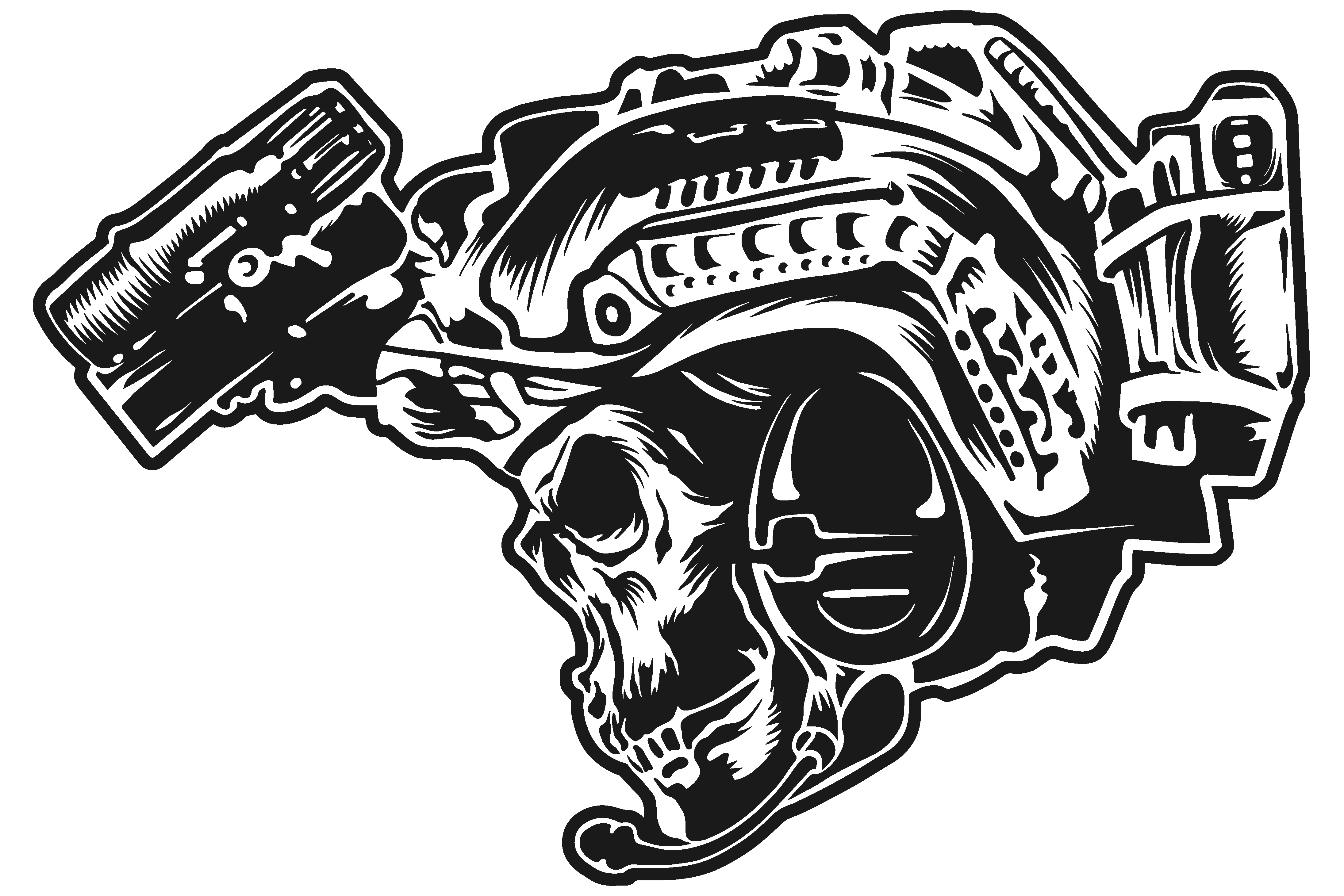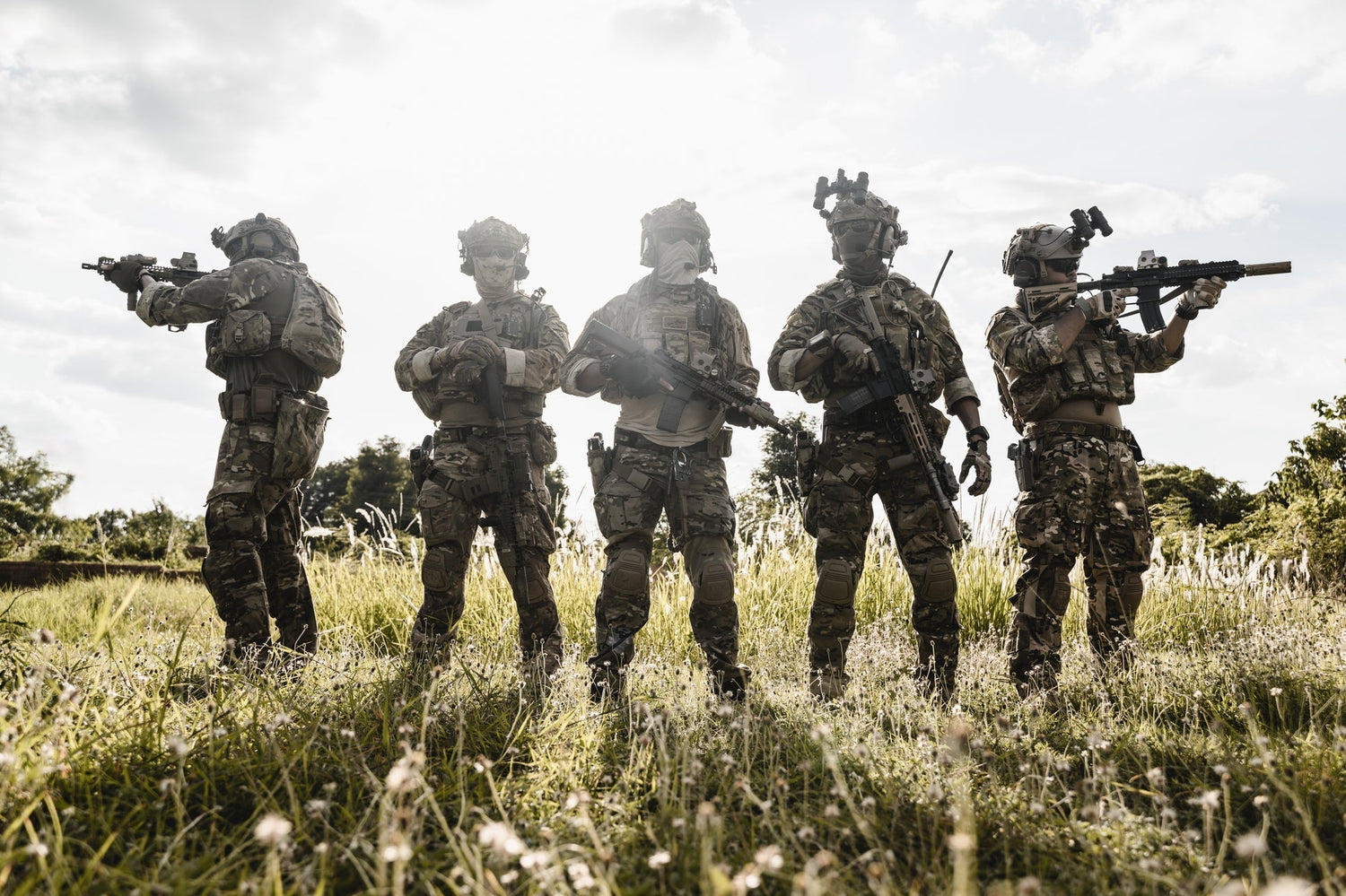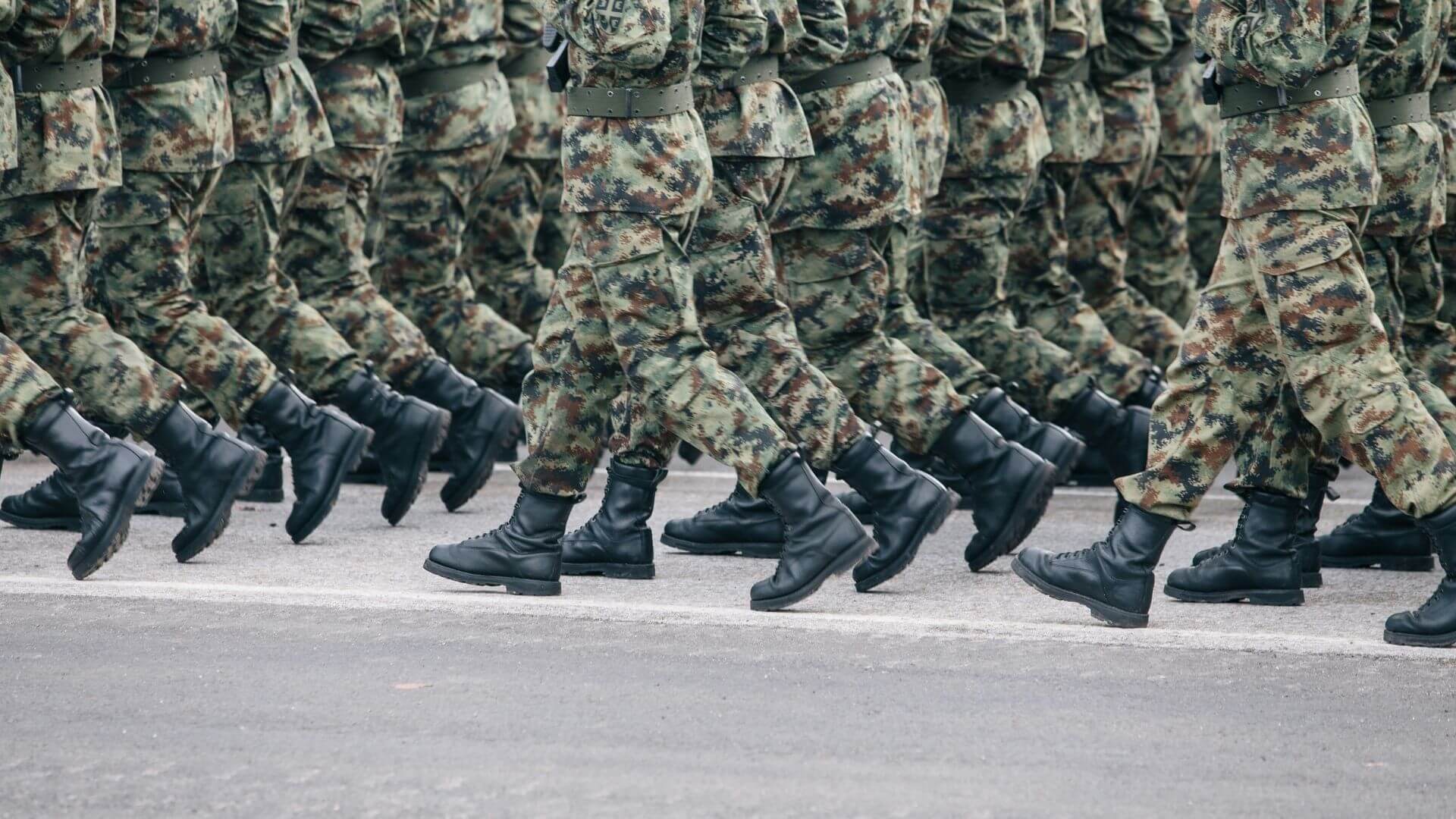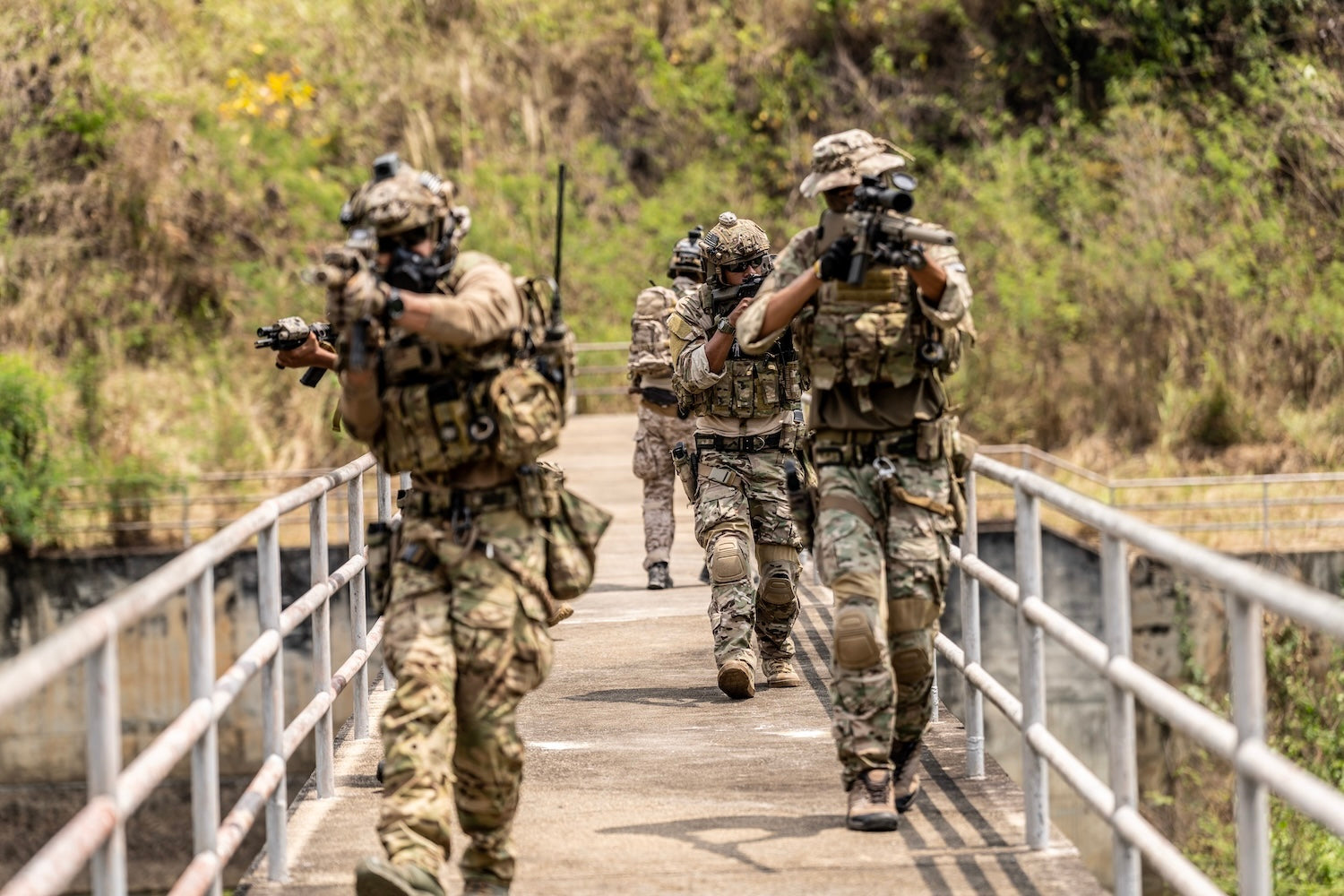The Bundeswehr training offers more than just a job – it challenges you to take responsibility and grow. Whether you join the military path as a recruit or choose a civilian training route, you become part of a system based on loyalty, community, and performance. In both areas, soldiers make their contribution every day.
Why train with the Bundeswehr?
The Bundeswehr is one of the largest employers in Germany – and one of the most versatile. A training with the Bundeswehr means:
- Secure prospects,
- Genuine camaraderie
- Diverse tasks that create meaning.
Whether in uniform or not, your contribution is needed. At home and abroad, the Bundeswehr contributes to the security of the Federal Republic of Germany, its partners, and the international community.
In addition to a competitive salary and diverse career opportunities, the Bundeswehr offers modern workplaces, strong team spirit, and an environment where every individual’s commitment counts. Those who choose to work for the Bundeswehr choose stability, cohesion, and growth — both professionally and personally.
Military Training with the Bundeswehr
Requirements for the Military Career Path
Anyone wishing to begin a military training with the Bundeswehr must meet specific requirements. The key prerequisite is German citizenship. The minimum age is 17 years. For minors, parental consent is mandatory. To serve in the Bundeswehr, both physical and mental resilience are just as crucial as teamwork and a sense of responsibility.
Depending on the chosen career path – whether as a recruit, non-commissioned officer or officer – requirements may vary. Your educational qualification also plays a role: a basic school diploma is typically sufficient for entry-level positions, whereas an Abitur (high school diploma) is required for officer roles.
The application process begins with an online application followed by an invitation to the Bundeswehr Career Center. There, a multi-day selection process takes place, including:
- Aptitude test (e.g. CAT test, see below)
- a medical examination
- a physical fitness test
- and a personal interview
This combination provides crucial insights into your aptitude, potential, and physical capabilities.
What is the Bundeswehr CAT Test?
A central part of the selection process is the CAT test, which stands for Computer-Assisted Testing. It's an adaptive aptitude test conducted on a computer that evaluates your cognitive skills. Depending on how well you respond, the difficulty of the questions automatically adjusts.
The test assesses, among other things:
- Logical reasoning and problem-solving
- Mathematical comprehension
- Language proficiency and spelling
- Concentration and attention
- General knowledge
The CAT test is mandatory for almost all military career paths, whether you're aiming to become a recruit, sergeant or a future officer.
If you want to prepare in advance, you'll find plenty of useful resources on the Bundeswehr’s official website or in our extended background information. It's worth taking advantage of this knowledge early on to be well-prepared.
Basic Training in the Bundeswehr
The first stage of any military career is known as basic training – officially referred to as general military qualification. It usually lasts for three months and prepares you physically, mentally, and emotionally for life as a soldier. For many, Bundeswehr basic training is a defining experience – not just because of the discipline, but also due to the sense of unity it builds.
Training content includes, among other things:
- Drill and formal service
- Weapons handling (marksmanship training)
- First aid and casualty care
- Field training and combat service
- March training and physical fitness
- Political education and values instruction
- Sports to enhance performance
- Daily challenges in discipline, stamina, and teamwork
The role of the trainers is key – they teach not just military knowledge but values like camaraderie, loyalty, and readiness. You'll learn what it means to be part of a unit – to operate, fight, and persevere together. This experience bonds many recruits for life.
No matter whether you later serve in the Air Force, the Army, the Navy or in a specialized unit – Bundeswehr basic training lays the foundation.
Overview of Military Career Paths
After basic training, the Bundeswehr offers various military career paths depending on your education level, performance, and interests.
Enlisted Personnel (e.g. Rifleman, Sailor, Airman)
Entry typically starts at the minimum age of 17 with at least a lower secondary school diploma. As a recruit, you begin in the lowest rank group and work your way up over the years in terms of function and responsibility. The typical service period here is two to four years, with the option to extend.
Non-Commissioned Officers and Sergeants
This career path requires a middle school diploma. As a non-commissioned officer or later a sergeant, you assume leadership responsibilities – for small groups or in areas like technology or logistics. Training is practical and demanding: you'll learn to guide others, make decisions, and lead in combat. Depending on your area, you might hold the rank of Maat (Navy) or Staff Sergeant.
Officers
To become an officer, you generally need the general university entrance qualification (Abitur) or a technical diploma. You'll start with officer training, combining military leadership programs with a degree from a Bundeswehr university. This career path offers many deployment options within the armed forces – from medical services and unit command to mission planning. As a leader, you'll take early responsibility for people, equipment, and operations.
Tip: You’ll find a detailed overview of all ranks in the Army, Air Force, and Navy in our article Ranks of the Bundeswehr

Civilian Training in the Bundeswehr
Not everyone working for the Bundeswehr wears a uniform. The civilian training programs offer numerous opportunities for those looking to build a future in a secure and meaningful environment – without entering military service. Around 81,000 civilian employees support the armed forces in vital roles every day. The Bundeswehr is one of the largest public employers in Germany and offers you, as a trainee or later as a civil servant or salaried employee, not only a modern work environment but also real career opportunities.
Which Civilian Fields & Responsibilities Exist?
In the civilian career track, you’ll find jobs in over 50 recognized training professions. For example, you can work as a:
- Electronics technician for operating technology
- IT specialist
- Automotive mechatronics technician
- Administrative assistant
- Medical assistant
- Painter, chef, or warehouse logistics specialist
Many of these positions are found in the
- technical
- craftsman
- or commercial sectors
But also areas such as healthcare, research, or internal administration of the Bundeswehr offer attractive jobs with long-term prospects. The roles are as diverse as the people themselves – you can contribute your technical or organizational expertise, help shape operations behind the scenes, and still be part of something bigger.
Especially important: Even in civilian fields, many are later granted civil servant status – for example in the mid- or upper-level service of Bundeswehr administration. This path ensures job security, stable income, and clear opportunities for growth.
Dual Study Programs with the Bundeswehr
If you've completed your school education and are ready to take on responsibility, you can pursue a dual study program with the Bundeswehr – combined with training for a civil servant career. Possible fields of study include:
- Public Administration Management
- Industrial Engineering
- Engineering and IT
- Public Administration
The dual study program is offered in cooperation with civilian universities. During theoretical phases, you attend lectures, and during practical phases, you work at Bundeswehr administrative offices. You’ll earn a salary while studying and prepare for a responsible career in the public sector.
Whether as an apprentice in a workshop, an IT specialist in a data center, or a dual student in administration, civilian training at the Bundeswehr offers many paths to put your skills to good use – in an environment that values security, team spirit, and responsibility.
Salary and Compensation in the Bundeswehr
Training with the Bundeswehr offers not only meaning and stability – it also comes with fair compensation and clear career paths. Even during basic training, recruits receive a fixed income. The average Bundeswehr basic training salary is around €1,800 to €2,000 net, depending on rank and career path. With greater responsibility, your pay increases significantly.
Additionally, soldiers benefit from extensive benefits: free healthcare, bonuses, special payments, family benefits, and attractive pension schemes. Those who choose a longer service period have the opportunity to become a permanent part of the team – with options for civil service status, academic studies, or overseas deployments.
By the way: A detailed pay scale table sorted by career path can be found in our article Ranks of the Bundeswehr
Conclusion: Bundeswehr Training – Which Path Is Right for You?
Looking for more than just any job? This article has given you a first overview. The Bundeswehr training is not one-size-fits-all. Whether in uniform or civilian, whether technician or officer, in medical services or IT – you’ll find professions here that demand more and mean more.
Everything you need – facts, requirements, and career info – is already available. You just have to decide if you’re ready to take the next step.
The Bundeswehr offers many opportunities: Want to lead? Choose the officer career. Want to get hands-on? Start with the enlisted ranks. Want structure but without a uniform? Then a civilian training path is your route.
Want more? Check out our blog overview for topics on mindset, fighting spirit, and attitude.
FAQ – Frequently Asked Questions About Bundeswehr Training
What do you earn during basic training with the Bundeswehr?
The Bundeswehr basic training salary is approx. €1,800–2,000 net – depending on career path and rank. Accommodation and meals are included.
What are the basic requirements?
You need German citizenship, be at least 17 years old, and both physically and mentally fit. A school diploma is required.
Which training programs does the Bundeswehr offer?
Over 50 civilian and numerous military training paths – e.g. as recruit, sergeant, officer, IT specialist, mechanic, or administrative official.
What do I need to start training with the Bundeswehr?
An appropriate school diploma, the necessary fitness – and the willingness to work in a team and take on responsibility.
What is the easiest training program at the Bundeswehr?
Starting as a recruit in the enlisted ranks has the lowest entry threshold – though it’s still challenging.
How much does a trainee earn at the Bundeswehr?
In civilian apprenticeships, around €1,100–1,200 gross in the first year – plus social benefits and long-term career opportunities.
What is the selection process like?
After applying, you’ll undergo a multi-day assessment including the CAT test, sports test, medical check, and interview.
Are there part-time training options?
Yes – in the civilian sector, e.g. for parents or caregivers. Part-time is not offered in military service.
Can I become a civil servant later on?
Yes. Many civilian career paths lead to the mid or upper-level public service – with a clear path to civil servant status.












Leave a comment